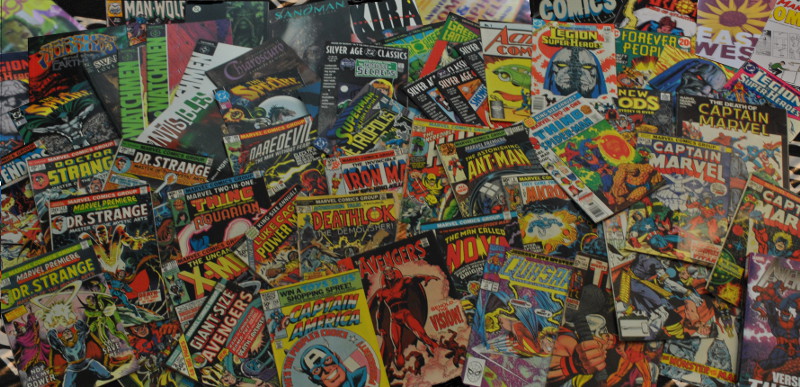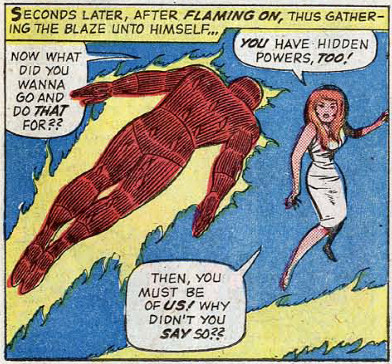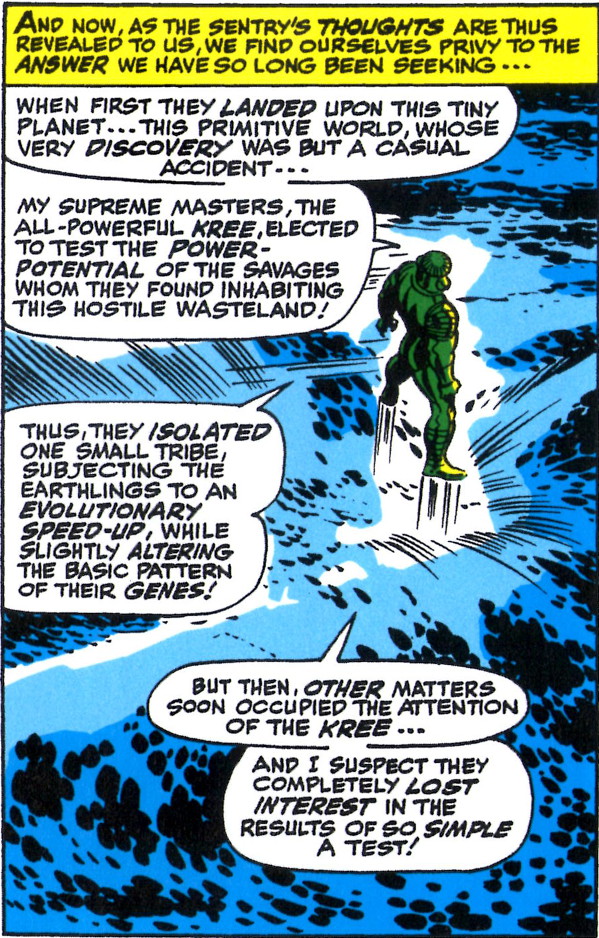Well I must admit that the directors, managers, and caretakers of the Marvel Cinematic Universe (MCU) really have their act together. I’m not speaking about their dominance in the movie theaters, as unprecedented and impressive as that may be. Nor am I speaking about their ability to spin-off successful Netflix series like Daredevil and Jessica Jones. I am speaking about the adroit way that they are weaving a compelling storyline into Agents of S.H.I.E.L.D. while simultaneously dealing with a business decision that had the potential to sour the whole fan-boy experience they’ve built.
The business decision that I am discussing is the licensing of the X-Men franchise to Twentieth Century Fox lo’ those many years ago.
At the dawn of the 21st century, Marvel had essentially ceded the title of king-of-comic-book-movies to DC comics. The handful of made-for-TV films and unreleased projects served only to emphasize the inability of Marvel to bring its brand to the big screen. Even the hottest commodity of the 1990s, all things X-Men, didn’t get more than a couple of animated series during that same time frame.
That was all to change with the release of X-Men in 2000. Suddenly there was proof that the Marvel brand could make it big on the screen and the Twentieth Century Fox hold on the Children of the Atom was cemented. This hold was reinforced was by the success of X-Men 2 (2003) and became so steadfast that it was able weather the disastrous storm that was X-Men: The Last Stand (2006).
Perhaps Fox would have given up on the X-Men, but the continuing success that they were having with the Fantastic Four and success of the Columbia Pictures Spider-Man and Ghost Rider movies most likely made them sit tight until the best way to mend the fence could be seen.
In the meantime, Marvel launched Iron Man in 2008 and the MCU was born. Profits flowed in, legends were born, and grand plans evolved. Suddenly Marvel had money and Fox had a commodity that would either earn money for them directly through film or indirectly if Marvel Studios would purchase the rights back.
Whether Fox decided to keep the X-Men franchise or Marvel refused to but is unknown to me. What is clear is that Fox had another go everyone’s favorite mutants and has had good successes (X-Men Origins: Wolverine (2009), X-Men: First Class (2011), The Wolverine (2013), and X-Men: Days of Future Past (2014)) with the fan-favorite Wolverine being an instrumental character in the recovery and reboot.
And so it looked like the MCU would just have to do without misunderstood, genetically modified, misfits in trendy and flashy costumes. Where would the MCU go to reach out to the young adult audience?
And here is where my admiration for the MCU architects comes in. They realized that the Inhumans could be repurposed to functionally fit the hole left by the absence of the X-Men. How did they do this, you ask? They’ve done it through a slow-and-steady retconning of the Inhumans within the structure of Agents of S.H.I.E.L.D..
Perhaps the single largest aspect of the Inhumans that had to be restructured was the whole concept of the isolated and insular nature of the original society as conceived by Lee and Kirby. When the Human Torch first meets Crystal, he has no idea that she is part of the royal family and is cousin to Black Bolt, who is the king in exile.
As the Inhuman mythology evolved, their separateness from the human race became more pronounced. They weren’t like us; they were aloof, and apart, and distinct. Being genetically modified by the Kree, they weren’t alienated from mankind they were alien. While gaudy in garb and awesome in power, the Inhumans just weren’t relatable as human beings – they were more like forces of nature.
Part of the appeal that the X-Men during the decades leading up to the first Fox movie, was this idea that mutants were born of human parents and either were gifted with their powers from the get go or had them thrust upon them at puberty. They were easily identifiable with teenage rebellion and feelings of awkwardness. Most of the stories centered around ‘normal’ kids coming to grips with their abnormal gifts and being mentored by like-gifted grown-ups who offered a safe ear for the secrets and changes that they were going through when their parents couldn’t or wouldn’t. Clearly the classics Inhumans didn’t fit this bill.
This is exactly where the MCU architects hit their master stroke. What if anyone could be an Inhuman? Sure there could still be a hidden refuge or two and a ruling class, but the average Inhuman looks like us, fits in with us, even thinks that they are us until exposure to the Terrigen mists. Then all manner of changes occur – changes with which they need help and guidance. They live among us in plain sight but they hide their gifts when able. They feel that marginalized and alienated and… suddenly the Inhuman dynamic looks and feels just like the mutant dynamic. The only difference being the trigger not the response.
They also came up with an excellent way to push that trigger out to the entire world. In the old Fantastic Four days, the Inhumans zealously guarded the Terrigen mists. In this new regime, the Inhumans want to expose as many of us as possible to the mists. Just like the randomness associated with the accident of birth so too is the exposure to the mists.
And so we see how adroit the MCU architects are. They managed to circumvent a potentially harmful business decision by creating a compelling substitute for one of the most sought after franchises and all that was required was some modest retooling.
Inhuman versus Mutants? Doesn’t seem like there is much difference now.


